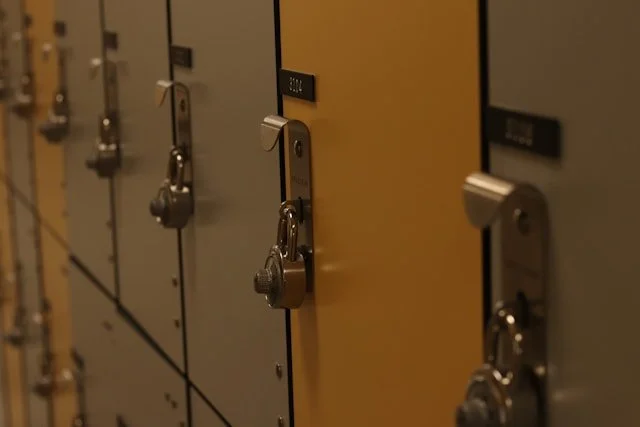Today I have the privilege of sharing a poem from my daughter, Camille. She is currently working at the South Rim of the Grand Canyon and composed this poem as a praise to the Lord, my Rock (praise to the Lord, my Rock (YHWH Tsuri, see Ps. 18:2, for instance). Note also that ebneezers are stone monuments that memorialize the Lord’s help (see 1 Sam. 7:12, for instance). Finally, “ranan” means “to shout for joy” in Hebrew. -John
An Upside-Down Guide to High School
I vividly remember freshman year, walking into the big leagues with 6-foot-tall basketball players roaming the same halls as myself. Looking to these 18-year-old giants, nay, men who had seemingly figured all things out as they were so very close to tasting the real world. The crowds of friends blocking the hallways, (would I ever be a part of that?), the guy and girl walking side by side, (will I ever have that?), the announcements of the valedictorian over the loudspeaker, and the waves of congratulations that followed their steps, (I wonder if people will ever recognize me?).
This Week's Recommendations
I will not forget you: Kathryn Butler offers hope in the midst of dementia, “Walking alongside Violet feels like watching death in slow motion. As the quirks and values and personality traits I’ve come to love about her fade away one by one, it’s as if I’m watching Violet herself dwindle and vanish.”
Critical dynamics of criticism: Nick Batzig begins, “It is probably fair to draw the conclusion that there is a universal dislike for personal criticism and correction. Nothing reveals the pride that resides in each one of our hearts so much as being on the receiving end of criticism.”
This Week's Recommendations
The world cannot be gender blind: Trevin Wax, “One of the strange ironies of our times: a significant segment of the left pushes back forcefully against the idea of “color blindness” regarding race but demands what amounts to “gender blindness” regarding sex…”
Violent pornography’s assault on the marriage bed: A very sobering read from Joe Carter, “Because these images are being fed to him when his personality is still being formed and his sexuality is developing, he begins to confuse his desires with those he sees in porn…
Our Desires Lead to Death
“I am what I feel” sums up expressive individualism. Our culture frames identity around discovering what our deepest desires and longings are. To know our longings is to know ourselves.
In Billie Eilish’s 2023 song “What was I made for?” written for “Barbie,” Eilish reflects on the confusing journey to understand her feelings. It’s this journey, she assures herself that will lead to her happiness.
This Week's Recommendations
The top 100 brands by value: Interesting infographic from visualize. Most surprising to me was that US companies made up half of the 100 brands. Unsurprisingly, China has a lot of companies represented as well.
Thirteen years of coming back: I just love this post from Brianna Lambert. “Thirteen years of marriage, and Lord-willing many more ahead. I look back, and I see the beauty of a promise that won’t let go. I see two people, linked by an invisible cord. Though trial, sickness, and sin stretches it taut, the Lord won’t see that it breaks. Instead, the cord leads us back together, as we slowly pull ourselves nearer. Back to rest, back to forgiveness, back to joy, back to the hand I love to hold, and back to the love that started it all.”
This Week's Recommendations
Don’t Let the Culture War Steal Your Joy: Trevin Wax reflects, “The worrisome quality I find in much of today’s cultural commentary is the absence of joy. It’s as if our souls have shriveled until all that remains is a sense of hopelessness, a quiet resignation that assumes the church cannot thrive in this strange new world.”
Holiness is Transgressive: Brett McCracken’s post sizzles. I love this, “’Transgression’ in contemporary pop culture has become ubiquitous to the point of banality…it’s all so pervasive by now that it’s tiresome, as “transgressive” as the khaki section of Old Navy.”
Church Attendance Drops Among Young, Liberals, and Singles: Christianity Today reports, “Before the pandemic, 75 percent of Americans reported attending religious services at least monthly. By spring 2022, that figure dropped to 68 percent attending at least monthly.”
I Want Him Back (But Not the Old Me Back): Tim Challies on sanctification and the death of his son, “I want Nick back. But I don’t want my old self back. I so badly wish that my son could be part of my life again. But I would so badly hate to lose all the precious ways in which God has been real to me and true to me and present with me in my sorrows.”
Travel Photographer of the Year: If you enjoy photography, make sure you scroll through all of these. The elephant and the lion looking through the buffalo pics are particularly stunning.
This Week's Recommendations
Why Do Billionaires Want to Live Forever: Tim Challies begins a deep reflection with this question, “Why is it that billionaires always seem to want to live forever? Why is it that the 1% of the 1% almost always seem to veer from their core businesses into attempts to prolong their lives indefinitely?”
Why Mainstream Scholars often Differ with Evangelical Pastors on the Gospel: Having attended a mainline seminary, I resonated with George Sinclair’s reasoning here. Near the end of the post he shares, “There is a rich, thick, deep history and literature of Christian thought which shows not just the truth and reasonableness of miracles, but the importance of them for a wide, humane, and beautiful understanding of the world—one which leads to human flourishing.”
Fertility is Not a Disease: D Eaton writes, “This desire to have sexual pleasure without constraint has culture suppressing the truth of not only biblical revelation but also science. To justify the extermination of the child, we must classify the child in the womb as either not a human in its natural course of existence or not alive. It is impossible to deny either scientifically, yet logic and truth must be sacrificed on the altar of sexual autonomy.”
The Last Gift My Father Gave Me: This is an excellent piece from Mike Cosper. He shares how his father’s death allowed him to finally experience the gift of grief.
Your Money Will Trick You: Trevin Wax reminds us, “Jesus says ‘Watch out!’ and ‘Be on guard’ as if there’s a silent, stealthy enemy creeping up on an unsuspecting person, ready to pounce. We like to think of wealth and possessions as inanimate objects, helpful to us if we use them correctly, but basically neutral.”
Fighting for Victimhood
As a boy I was fascinated with pain. I often wondered how the pain I felt compared to pain others felt. I mostly kept this to myself, but there was at least one occasion I got into an argument with friends about who had experienced the most pain.
We all shared our stories: fractured limbs, concussions, road rash, and a hernia (that was my best card). As each story concluded the storyteller would lean back, content with his story, expecting white flags to be raised in defeat. But, in fact, each of us was disappointed with the reception of our tales of woe as the next storyteller would jump in, one-upping the last teller’s story of pain with his own.
I look back with embarrassment at the immaturity and narcissism this pain one-upmanship revealed in me. And yet, is this not the culture we live in today: a culture of victimhood?
The Royal Flush of Victimhood
There is nothing more powerful in today’s culture than playing the card of victimhood. And there appear to be more playing that card than ever before.
The Robbery of Victimhood
As a boy I was fascinated with pain. I often wondered how the pain I felt compared to pain others felt. I mostly kept this to myself, but there was at least one occasion I got into an argument with friends about who had experienced the most pain.
We all shared our stories: fractured limbs, concussions, road rash, and a hernia (that was my trump card). As each story concluded the storyteller would lean back, content with his story, expecting white flags to be raised in defeat. But, in fact, each of us was disappointed with the reception of our tales of woe. Our friends seemed unmoved by our ghastly pain and then would jump in with their own story, believing they could one-up the pain the last storyteller experienced.
I look back with embarrassment at the immaturity this pain one-upmanship revealed in me. My lack of empathy revealed a narcissistic heart. Thinking that my own pain was greater than anyone else’s only demonstrated my ego. Today’s culture of victim reveals similar truths about our collective hearts.
The Wild Draw Four Card of Victimhood
There is nothing more powerful in today’s culture than playing the card of victimhood. Like a kid holding onto the Wild Draw Four card in Uno, we hold tight to our victim card, pulling it out at just the right moment, expecting it to guarantee our victory.














